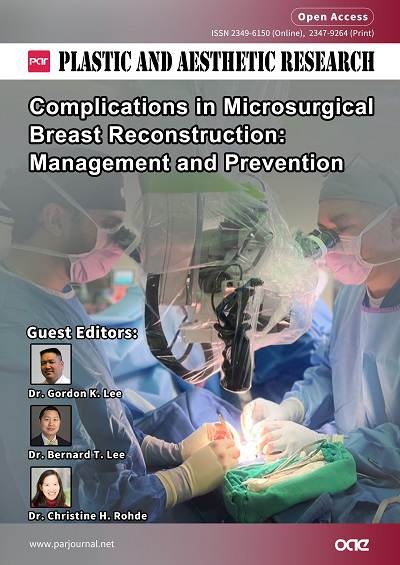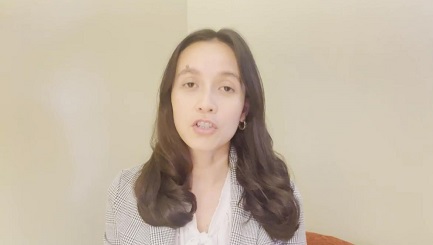
Topic: Complications in Microsurgical Breast Reconstruction: Management and Prevention
A Special Issue of Plastic and Aesthetic Research
ISSN 2349-6150 (Online) 2347-9264 (Print)
Submission deadline: 30 Nov 2022
Guest Editor(s)
Dr. Gordon K. Lee
Division of Plastic and Reconstructive Surgery, Department of Surgery, Stanford University Medical Center, Stanford, CA, USA.
Dr. Bernard T. Lee
Division of Plastic and Reconstructive Surgery, Beth Israel Deaconess Medical Center, Harvard Medical School, Boston, MA, USA.
Special Issue Introduction
Microvascular breast reconstruction has progressed tremendously over the last 40 years with more reliable results and more flap options. Despite the advances in microsurgical techniques and outcomes, complications can still occur and the management of which often frustrates even very experienced surgeons. In this Special Issue, we discuss complications associated with microvascular breast reconstruction and how to manage them effectively. When there is a microvascular thrombosis, early reoperation is indicated. We discuss specific surgical maneuvers to salvage a failing flap, as well as present clinical pearls to minimize the risk of thrombosis. Partial flap loss and fat necrosis are not uncommon outcomes and can be challenging to manage. Mastectomy skin necrosis, abdominal donor site complications such as hernias and bulges, wound healing problems, infections, and seromas all negatively impact patient satisfaction. How can surgeons best manage these complications and what can be done to prevent them? Although surgeons may strive to stay within best practices, flap failures can still occur sometimes for reasons that are unknown. What's the next best step? What are the options? As surgeons, we want to have happy patients. Being able to manage and prevent complications is critical for every plastic surgeon and this Special Issue will be a valuable source of information.
Keywords
Microvascular breast reconstruction, mastectomy skin necrosis, flap, wound healing, microvascular thrombosis, complication
Submission Deadline
30 Nov 2022
Submission Information
For Author Instructions, please refer to https://www.oaepublish.com/par/author_instructions
For Online Submission, please login at https://oaemesas.com/login?JournalId=par?IssueId=PAR220607
Submission Deadline: 30 Nov 2022
Contacts: Smart Zhang, Managing Editor, par_editor@oaemesas.com







